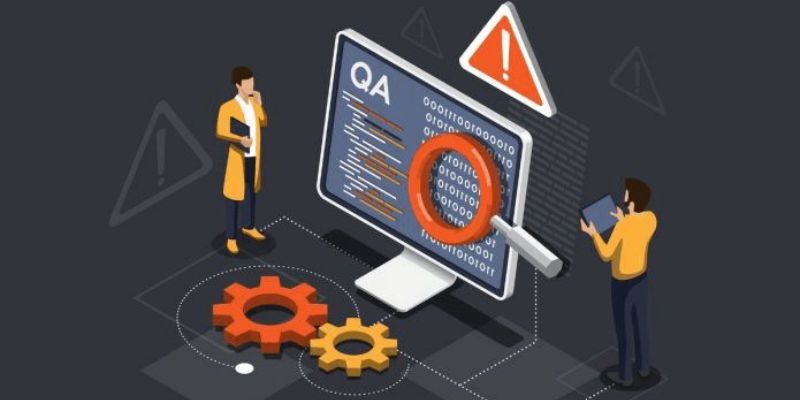Software testing plays a major role in ensuring that applications run smoothly and meet user expectations. Every product, from mobile apps to large enterprise systems, goes through testing before it reaches customers. This field is not just about finding bugs-it’s about ensuring quality, performance, and reliability. To succeed as a software tester, professionals need a mix of technical knowledge, problem-solving ability, and communication skills. Enrolling in a Software Testing Course in Coimbatore at FITA Academy can help you develop these essential skills and build a strong foundation for your career in testing.
Understanding of Software Development Life Cycle
A good software tester should understand how software is developed from start to finish. Knowing the different stages of the Software Development Life Cycle (SDLC) helps testers plan better and identify potential issues early. This understanding allows them to work closely with developers and ensure that testing is integrated throughout the project, not just at the end.
Knowledge of Testing Types and Techniques
Testing involves different approaches such as manual testing, automation testing, performance testing, and security testing. A tester must know when and how to apply each one. For example, manual testing helps in checking usability and user experience, while automation testing saves time in repetitive tasks. Having a strong grasp of testing techniques helps in selecting the right strategy for each project.
Attention to Detail
A successful tester always pays close attention to even the smallest details. Sometimes, a minor error can cause big problems once the software is launched. Careful observation helps in identifying hidden issues and ensuring that the final product meets all quality standards. A tester’s ability to spot subtle differences or inconsistencies can make a huge difference in the overall success of the software.
Strong Analytical Thinking
Analytical thinking allows testers to understand how different parts of the system work together. It helps in identifying the root cause of issues rather than just noting their symptoms. Testers often need to think logically, evaluate risks, and plan tests that cover both expected and unexpected scenarios. This skill ensures that the product is tested thoroughly from every possible angle. A Software Testing Course in Madurai strengthens analytical thinking through case studies and real-world examples.
Basic Programming Knowledge
Even though testing is not always about coding, having basic programming knowledge is highly beneficial. Understanding languages like Java, Python, or SQL helps testers communicate effectively with developers and write simple automated scripts. It also enables them to understand how an application works behind the scenes, which improves the quality and accuracy of their testing.
Familiarity with Testing Tools
Modern software projects rely on testing tools to manage, track, and automate test cases. Tools like Selenium, JIRA, TestNG, and Postman are commonly used across industries. Knowing how to use these tools helps testers perform their tasks efficiently and maintain proper documentation. As tools evolve, continuous learning becomes important to stay updated with the latest technologies in the testing field.
Communication and Collaboration Skills
Testing is a team effort, and good communication plays a vital role. A tester needs to explain issues clearly to developers, managers, and clients. Writing detailed bug reports, sharing feedback, and discussing improvements require strong communication skills. Collaboration also ensures that everyone in the project works toward the same goal of delivering a quality product.
Time Management and Organization
Testing projects often come with strict deadlines. Managing time wisely helps testers complete all necessary checks before the product release. Organizing test cases, tracking progress, and prioritizing tasks help avoid last-minute rushes. A well-organized tester ensures that no important area is missed, even when working under pressure.
Adaptability to New Technologies
The software industry changes quickly, and new tools, frameworks, and methods appear all the time. Successful testers keep learning and adapting to these changes. Staying flexible and open to new technologies ensures long-term growth in the career. Those who continuously update their knowledge become valuable assets to any organization. A Software Testing Course in Pondicherry ensures learners stay current with the latest advancements in the testing industry.
Problem-Solving Attitude
Testing is not just about finding problems-it’s about solving them. A positive and curious attitude helps testers think creatively and find solutions that improve the product. When faced with a challenge, a good tester looks for ways to overcome it rather than focusing only on the issue. This mindset helps in delivering better results and improving overall product quality.
Understanding of Business Requirements
A tester must also understand what the client or end user expects from the software. By analyzing business goals and requirements, testers can design test cases that ensure the product meets real-world needs. This approach not only enhances user satisfaction but also builds trust with clients and stakeholders.
Continuous Learning and Certification
Learning never stops in the field of software testing. Earning certifications like ISTQB or CSTE adds credibility and deepens technical knowledge. Attending workshops, reading industry blogs, and practicing on real projects help testers grow professionally. Continuous learning ensures that testers stay ahead in an ever-changing industry.
Building a successful career in software testing requires more than just technical skills. It demands curiosity, patience, communication, and a desire to deliver quality. By developing analytical thinking, mastering tools, understanding business needs, and staying open to learning, testers can build a rewarding career path. As technology keeps evolving, software testing will continue to offer exciting opportunities for those ready to explore, learn, and contribute to the world of quality software. Starting with a Software Testing Course in Tirupur can be the perfect first step toward achieving this goal.
Also Check:
